Historically known as phthisis, tuberculosis is now known to be an infection that is caused by many species of mycobacteria, most often Mycobacterium tuberculosis. Although the lungs are the most common target, tuberculosis can manifest in other organs.
Active tuberculosis infections can be disseminated through the airways when infected patients cough, sneeze, or release other respiratory fluids into the air.
As the country with the highest prevalence of tuberculosis in the world, India carries a disproportionate share of global TB statistics. TB is a major public health problem in India, with an estimated 2.6 million new cases and 480,000 deaths in 2020. The country has the highest burden of TB globally, accounting for 26% of all new cases.
The government has established a number of treatment facilities in an effort to stem the spread of this disease. A large number of private hospitals and medical clinics are also available, giving alert therapy against the sickness and offering free checks and prescriptions to the people. The Indian government is committed to eliminating TB by 2025. This goal can be achieved by continuing to implement the RNTCP, investing in research and development, and raising awareness of TB.
Here is a listing of some of the dedicated and the well known TB treatment hospital In Delhi each of which offers specialized care for patients with tuberculosis and related respiratory illnesses.
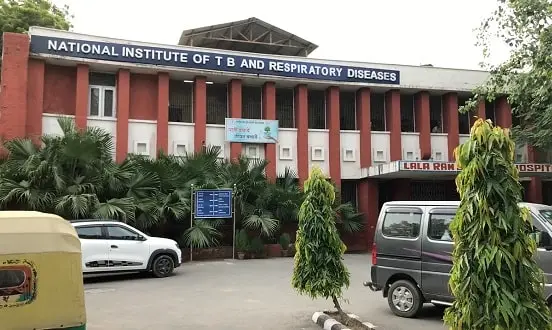
The Tuberculosis Association of India founded LRS TB Hospital that same year, in 1952. In 1991, the government of India transformed the facility into an independent institute. After becoming an independent Institute under the Ministry of Health and Family Welfare, Govt. of India, the Institute's former name was changed to LRS Institute related to Tuberculosis and Respiratory Diseases.
Teaching, training, and research in the area of tuberculosis and other respiratory diseases are all core tenets of the Department of Tuberculosis & Respiratory Diseases. The department's faculty provides support to the Indian government in the form of advice and expertise regarding TB control techniques.
As part of India's national program, the faculty has made major contributions to the creation of recommendations for the treatment of tuberculosis, MDR-TB, and tuberculosis in children. Central Tuberculosis Department at the national level includes Drs. Rohit Sarin and Rupak Singla as members of multiple technical committees.
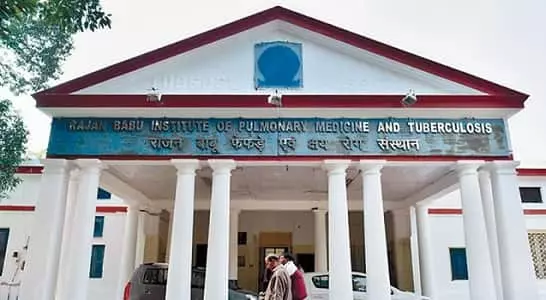
Rajan Babu Tuberculosis Hospital is One of the finest and the biggest TB hospitlal in India. Over eighty-seven percent of Delhi's TB patients, as well as those from neighboring states, are treated at one of the major Drug Resistant Tuberculosis Centers in India. The hospital is spread over 72 acres and has more than 1,155 beds.
The RNTCP conditional access program for the novel anti-TB medicine Bed aquiline will be implemented at this institution, one of six in India.
Chest specialists and surgeons, as well as resident physicians and other paramedical professionals, are available around the clock at the institute.
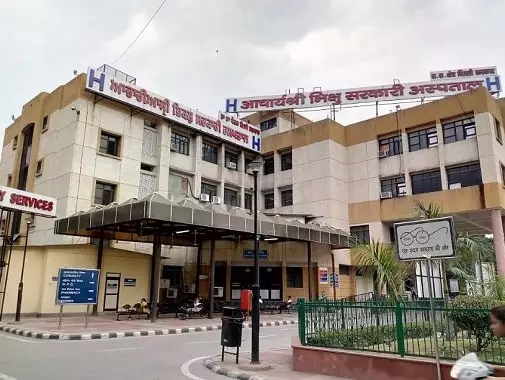
ESI Tuberculosis Hospital are caring for both sputum-positive and sputum-negative pulmonary tuberculosis patients, as well as those with extrapulmonary tuberculosis.
Patients receiving outpatient care in the TB & Chest Disorders Department get tuberculosis screening.
Asthma, COPD, bronchitis, bronchiectasis, pulmonary cancer, pulmonary fungal infection, and occupational lung illness are all conditions we treat.
They focus on paediatric pulmonary conditions, such as bronchial asthma and TB.
They accept patients with TB, chronic obstructive pulmonary disease (COPD) with exacerbation, asthma attack with exacerbation, and advanced tuberculosis.
For both newly diagnosed and treated effectively TB patients, they offer the Directly Observed Treatment, Short Course (DOTS) protocol, while those with multidrug-resistant TB (MDR-TB) have access to the DOTS PLUS REGIMEN.
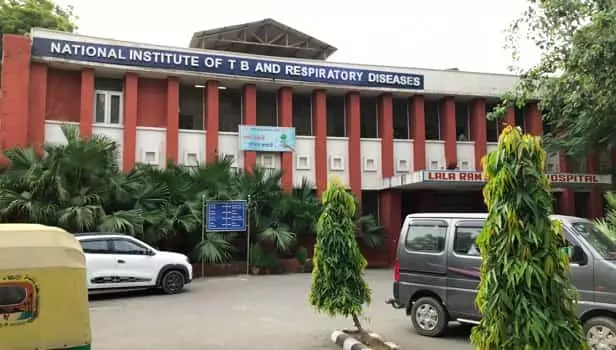
NDTBC Having started out in 1940 as a "Model TB Clinic," NDTBC is now a "National level center for TB & Chest Diseases" providing comprehensive health care, training, and education.
NDTBC has had the goal of being a national institute for TB and chest diseases since its founding.
Following diagnosis, all TB patients are sent to specialized TB clinics in their regions. Here, patients don't have to worry about dealing with any of the potential ATT-related issues or unpleasant side effects. If a patient needs surgery, they will be sent to the surgical services unit.
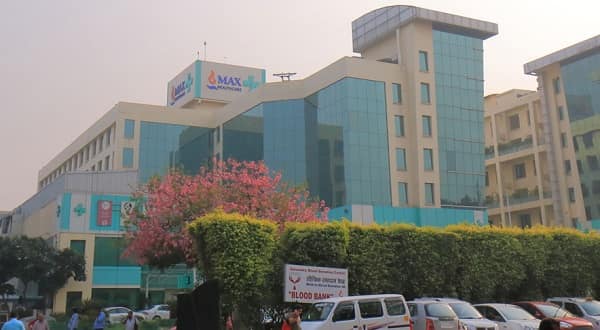
Max Health Care providing comprehensive health care, training, and education. Your physician will utilize a stethoscope to examine to your lungs and check the lymph nodes for inflammation as part of the physical examination.
Although blood testing is becoming more prevalent, tuberculosis skin tests remain the most often used diagnostic method. Subcutaneous tuberculin injections are given on the inner aspect of the forearm. You should just feel a very minor pinch from the needle.
The health care provider will examine the arm for enlargement at the site of injection after 48 to 72 hours. It is highly indicative of tuberculosis infection if the bump is hard, elevated, and red. The significance of the data is dependent on the sizing of the hump.
If your chance of getting active TB is significant, your doctor may prescribe medicine to those who have latent TB. Antibiotic treatment for active tuberculosis requires a minimum of six months and typically nine months of treatment.
Your age, general health, the presence of any medication resistance, and the location of the infection will determine which drugs you will take and how long your therapy will last.
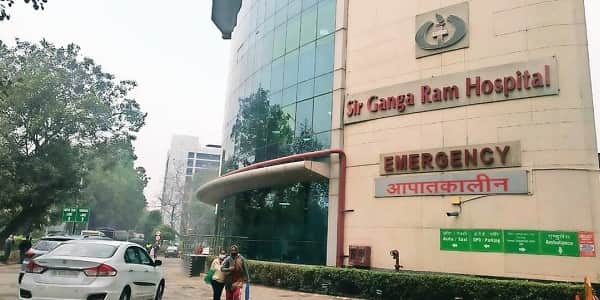
Sir Ganga Ram Hospital (SGRH) is one of the most reputed private hospitals in New Delhi that offers high-quality TB treatment. The hospital has a dedicated Chest Medicine department with a team of experienced and qualified doctors. The department provides a range of services for TB patients, including:
SGRH also has a DOTS (Directly Observed Treatment Short Course) center, which provides free TB treatment to patients under the Revised National Tuberculosis Control Programme (RNTCP).
Final words
Choose the best TB hospital listed above and get the right treatment at affordable costs.